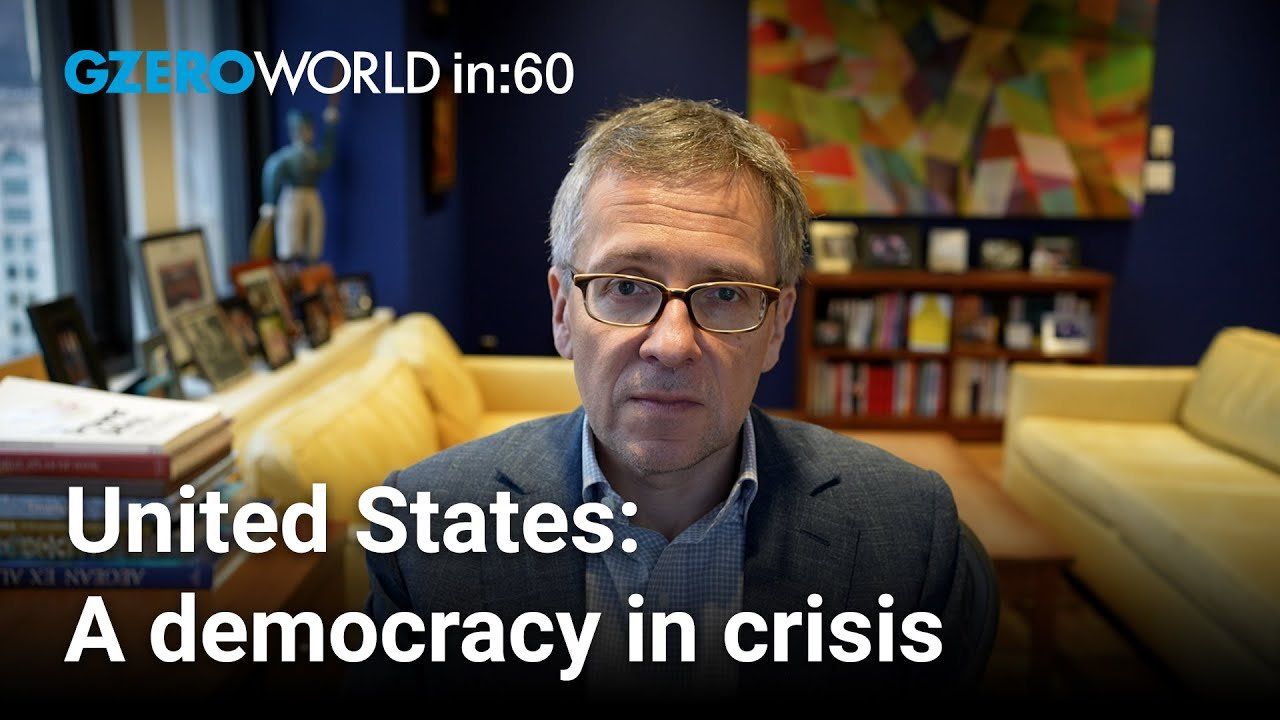
Ian Bremmer shares his insights on global politics this week on World In :60.
First , how will the appeals court decision on Trump's presidential immunity claim play into your Top Risk of 2024?
Well, the top risk is the US election, the US versus itself. What we see is that Trump is having more time to campaign before decisions are made, potential convictions are made while the primaries are playing out. In other words, he's likely to get the nomination before he's going to be convicted of anything. And what that means is, he'll have all the Republicans behind him. And at that point, if he gets convicted, it's kind of too late because the people that are going to vote for him are on the other side. So, yeah, this is increasingly a democracy in crisis. That's what we're looking at in the United States in 2024.
How will the upcoming Taiwan presidential election affect its relationship with both the United States and China?
Well, the election is close to a coin flip between the sitting vice president, William Lai, and the DPP. And the opposition in the KMT has more stable relationship, cross-strait relations with mainland China. If Lai wins, which is slightly, slightly more likely than not, the Chinese government is going to respond negatively. And that doesn't mean war, but it does mean sharp economic relations. It means that trade relations will be hindered and it may, at the worst, mean that some ships are going to be inspected. That will certainly hurt US-China relations. But that's in the context of a US-China relationship that both sides want to manage this year. They don't want additional crisis. So I'm less worried about this election next week than a lot of other people are.
With Israel conducting airstrikes in Lebanon, is an expanded war in the Middle East inevitable?
I'm having a very hard time seeing how we will be able to maintain a contained war in Gaza over the course of the year.There are far too many ways for this to extend and expand, both in the West Bank, in Lebanon, with Hezbollah in the Red Sea, with Iranian proxies in Syria, in Iraq, with Iran itself, and of course, given radicalism of Islamic extremist groups, lone wolves, all the rest. I mean, you have to get an awful lot of things right and lucky to keep the war contained, if I can call it that, to where it is right now. On balance, I would bet very strongly this war is set to get significantly worse.
That's it for me and I'll talk to you all real soon.
- A world of conflict: The top risks of 2024 ›
- Trump to skip debate and star in town hall ›
- Trump’s immunity claim under scrutiny ›
- The Taiwan election and its AI implications ›
- US vs. China in Taiwan ›
- America vs itself: Political scientist Francis Fukuyama on the state of democracy - GZERO Media ›
- Al Gore's take on American democracy, climate action, and "artificial insanity" - GZERO Media ›
- The US Supreme Court’s “upside-down” logic in Trump immunity case - GZERO Media ›
- How the Supreme Court immunity ruling changes presidential power - GZERO Media ›
- Divided we fall: Democracy at risk in the US - GZERO Media ›